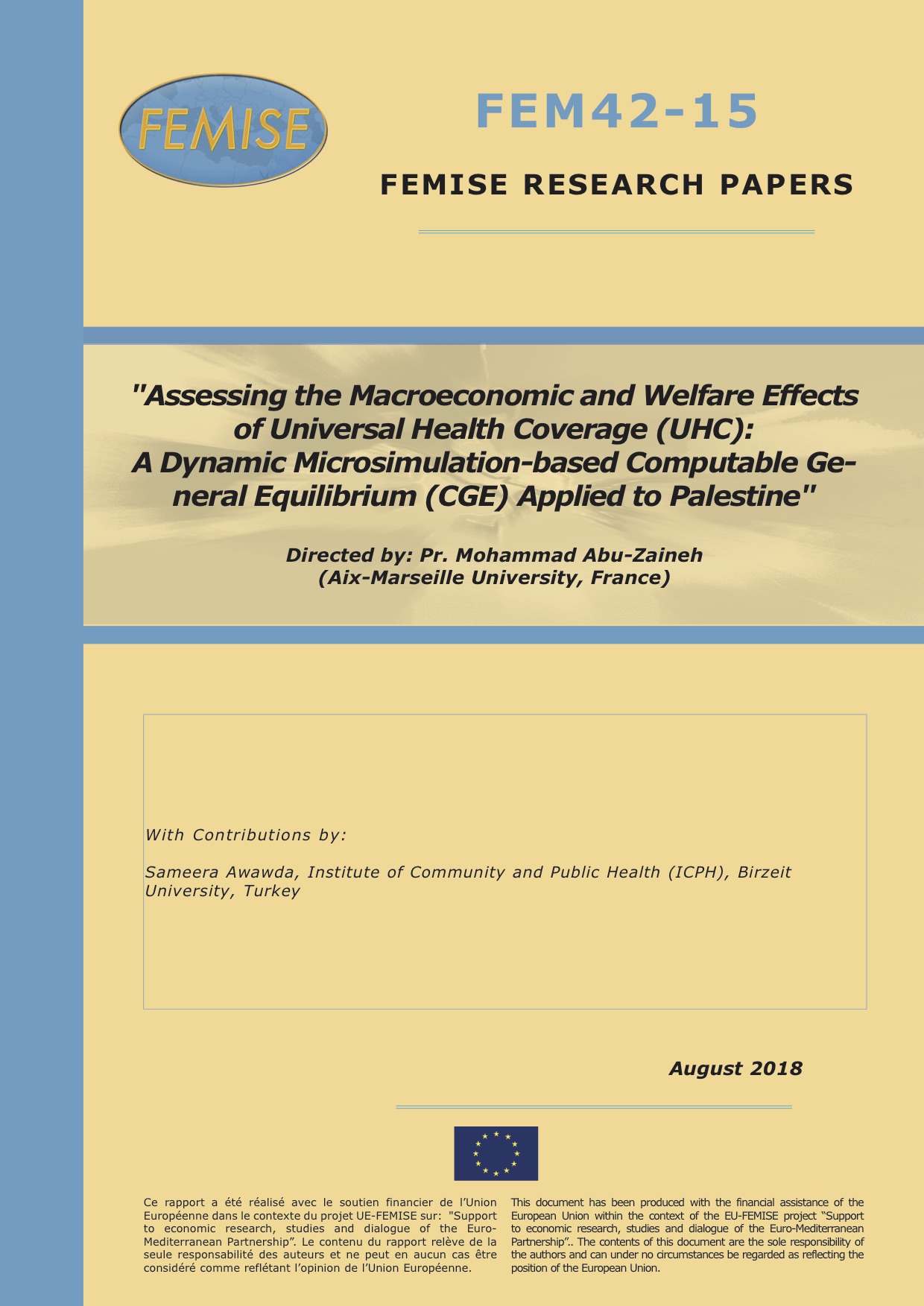 The implementation of “Universal Health Coverage” (UHC) poses serious challenges. Some of these stem from the macro-fiscal space considerations while others relate to the micro-behavioral sphere.
The implementation of “Universal Health Coverage” (UHC) poses serious challenges. Some of these stem from the macro-fiscal space considerations while others relate to the micro-behavioral sphere.
This project seeks to assess the macro-fiscal conduciveness of UHC-oriented reforms in Palestine using a dynamic microsimulation-based Computable General Equilibrium (CGE) approach. Overall, UHC-oriented reform appears to enhance social welfare and economic growth. However, a parallel expansion in the breadth and width of coverage can have a sizeable budgetary impact, with fiscal deficit representing 14% of the GDP, of which about 2% is due to UHC. The latter would absorb about 10% of GDP, 15% of public spending and 57.4% of public spending on health. Under conditions of narrow fiscal space, an additional annual growth of 3.0% is required to progress along all the dimensions of UHC. A set of policy measures, which can help achieve UHC in a financially sustainable manner is advanced.


